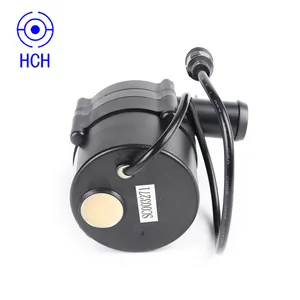Introduction to Pumps Tubes
Pumps tubes are essential components in various industrial and commercial applications. Designed to efficiently transfer fluids, these tubes facilitate movement and control through various systems. Whether it's for transferring water, chemicals, or other liquids, understanding pumps tubes can enhance system efficiency and functionality.
Types of Pumps Tubes
When exploring pumps tubes, it’s crucial to recognize the various types available, tailored to meet specific application needs. Here are the most common types:
- Flexible Tubes: Ideal for applications where movement and flexibility are required. Made of rubber or reinforced plastic, they can withstand bends and twists without compromising fluid flow.
- Rigid Tubes: Typically made of metals or hard plastics, these tubes provide robust support in high-pressure systems, suitable for transporting heavy fluids.
- High-Temperature Tubes: Designed to handle extremes in temperature, these tubes are often made from specialized materials that can resist breakdown under heat conditions, perfect for chemical processes.
- Corrosion-Resistant Tubes: These tubes are constructed from materials that withstand corrosive substances, ensuring long-lasting use in industries like pharmaceuticals and chemicals.
Function and Features of Pumps Tubes
Pumps tubes serve multiple functions across various applications, characterized by features that enhance their performance. Understanding these functions can help in selecting the right tube for your needs:
- Fluid Transfer: The primary function of pumps tubes is to facilitate the movement of liquids from one location to another seamlessly.
- Pressure Handling: Designed to withstand specific pressures, these tubes ensure that fluid remains contained without leaks or bursts.
- Durability: Many pumps tubes are built to last, featuring resistance to chemicals, UV rays, and physical wear.
- Compatibility: Available in various sizes and materials, pumps tubes can easily connect with other systems, enhancing their versatility.
Applications of Pumps Tubes
The versatility of pumps tubes makes them suitable for a vast array of applications across different industries. Some key applications include:
- Water Supply Systems: Used in municipal water supply and irrigation systems to ensure effective fluid transportation.
- Chemical Processing: Essential in factories and plants for transferring corrosive or volatile substances safely.
- HVAC Systems: Employed in heating, ventilation, and air conditioning systems for fluid circulation.
- Automotive Applications: Frequently used in fuel lines and lubrication systems to maintain engine efficiency.
Advantages of Using Pumps Tubes
The use of pumps tubes in various applications comes with several advantages, which can significantly impact operational efficiency:
- Enhanced Efficiency: Proper selection of pumps tubes can maximize fluid transfer rates and reduce energy consumption.
- Reduced Maintenance Costs: Quality materials and construction lead to fewer leaks and breakdowns, minimizing upkeep and repair expenses.
- Improved Safety: High-quality pumps tubes are designed to reduce risks associated with leaks and material exposure.
- Customizability: Availability in various sizes and specifications allows for customization according to specific needs.














































